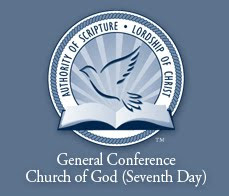Have you ever heard a sermon on the Old Testament book of Lamentations? I haven’t. I must confess I had never looked at its pages until recently. I’m not sure why I bothered, but I’m glad I did.
One reason this book, written by the weeping prophet, Jeremiah, is often overlooked is because the word “lamentations” doesn’t evoke thoughts of cheer. Lament means “to feel or express great sorrow” (Webster’s New World Dictionary and Thesaurus, Second Edition) and we tend to be a fun-loving people who prefer to dance around things that could send us into a depression.
A melancholy mood doesn’t fit the stereo-typical demeanor of joy that Christians are expected to parade before a world-wide audience; to act otherwise could appear hypocritical. However, whether it is a believer or non-believer adhering to that perspective, it is wrong.
In Ecclesiastes it says there is a time for everything: “a time to weep and a time to laugh, a time to mourn and a time to dance” (Ecclesiastes 3:4 NIV). So, if you believe the Bible, there is no reason to hide from the book of Lamentations.
Let’s take a look at the opening words of this oft-neglected book:
How lonely sits the city that once was full of people! How like a widow she has become, she that was great among the nations! She that was a princess among the provinces has become a vassal. (Lamentations 1:1 NRSV)
For many of us, these opening words are enough to make us put on our running shoes and race straight to Ezekiel, the next book in the Bible. No wonder we don’t see the neon lights of sermons, Bible studies, or coffee table books beckoning us to this undervalued treasure.
Why Bother?
Lamentations was written in 586 BC shortly after Jerusalem fell to the Babylonian King, Nebuchadnezzar, and his hordes. As recorded in the opening verse, Jerusalem became a vassal nation to her conquerors. (Vassal is synonymous with slave.) The once mighty city was forced to wallow in the shadow of a pagan nation.
It sounds awful, and it was. However, God allowed Jerusalem to fall. You may ask, “Why?” It was the disastrous results of His people’s sin and rebellion. Lamentations 1:14 says it all:
My transgressions were bound into a yoke; by his hand they were fastened together; they weigh on my neck, sapping my strength; the Lord handed me over to those whom I cannot withstand. (NRSV)
These words sum up the consequences of improper behavior, rebellion, and sin in the lives of God’s people.
God’s Anger at Sin
Lamentations 2 painfully describes God’s anger. Let’s take a look at some of the scathing words:
- How the Lord in his anger has humiliated the daughter Zion (2:1)
- The Lord has destroyed without mercy all the dwellings of Jacob (2:2)
- He has killed all in whom we pride in the tent of daughter Zion; he has poured out his fury like fire (2:4)
- The Lord has scorned his altar, disowned his sanctuary; he has delivered into the hand of the enemy the walls of her palaces (2:7)
Lamentations is not a fun, happy, let’s-skip-through-the-daisies, type of Christian story. It is God’s righteousness and anger toward sin. As Christians, one of our mantras is that God never changes; He is the same yesterday, today, and tomorrow. If we believe this, then practical Christianity understands there is benefit to acquainting ourselves with the sobering reality of Lamentations, even though we now live under the New Covenant.
The truth is that, at some point, God's righteousness will meet the sinful and rebellious nature of man. If studying the words of this weeping prophet does nothing more than point out our need for a Savior, our time has been well spent.
God's Hope
It's a wonder that anyone reads beyond the words of chapter one. However, for those who do, there is a blessing. Along with His righteousness, God is benevolent and full of love. Look at the beautiful portrait Lamentations paints of our Lord in the following verse:
The steadfast love of the Lord never ceases, his mercies never come to an end; they are new every morning; great is your faithfulness. (Lamentations 3:22)
Did you know those words came from Jeremiah's mourning? What about these brushstrokes on the divine canvas of God's Word:
For the Lord will not reject forever. Although he causes grief, he will have compassion according to the abundance of his steadfast love; for he does not willingly afflict or grieve anyone. (Lamentations 2:31-33)
God does love us and wants to lavish us with His adoration. Long after the fall of Jerusalem, He shared the ultimate love with mankind in the personage of His Son, Jesus Christ. Just as it says that God will not reject forever, we must not reject Him if we want to experience His love and compassion.
Our Repentance
In order to understand God's love and receive His compassion, we must repent in the midst of our sin and rebellion. Lamentations 3:39 asks,"Why should any who draw breath complain about the punishment of their sins?" If we think about it, we do deserve punishment. However, because we serve a loving God full of mercy, we have access to His remedy . . . repentance.
Let us test and examine our way, and return to the Lord. Let us lift our hearts as well as our hands to God in heaven. We have transgressed and rebelled, and you have not forgiven. (Lamentations 3:40-42)
These words are the first steps to real repentance. God will forgive; but, we must examine our ways, return to the Lord, and lift our hearts up to Him. He requires repentance. Yet He also provided Jesus to be the requirement we could never be on our own. Let Lamentations show you God's righteousness and compassion.
(c)2010 Shona Neff






No comments:
Post a Comment